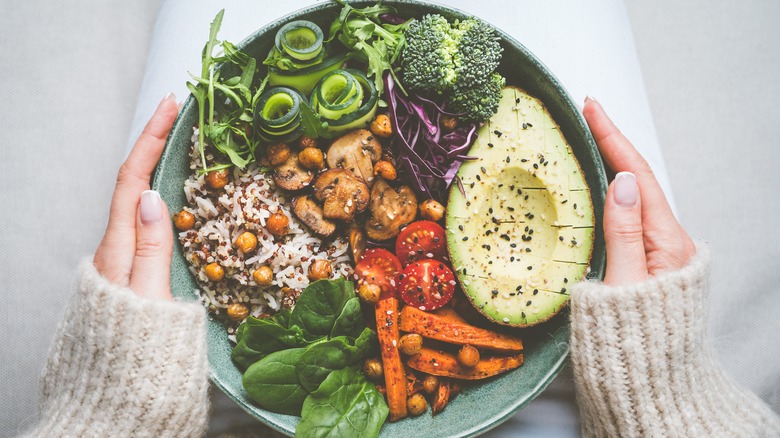Can You Reprogram Your Genes With Your Diet?
Wouldn't it be great to change your genes? It might seem like the plot of a sci-fi film, but your choices can actually influence your genetic code. While your DNA sequence can't be changed, your actions and environment can make certain gene expressions more or less likely.
Reprogramming your genes is rooted in the scientific field of epigenetics, which is the study of how our environment and behaviors influence the expression of our genes, says the Centers for Disease Control and Prevention (CDC). You can think of the thousands of gene expression options your cells have as being similar to a library filled with books. Through making choices combined with environmental factors, one genre or set of epigenetic expressions will ultimately be chosen.
The good news is that just like how you can return a library book and check out a new one, you can make lifestyle choices that can trigger different expressions of your genes. And, just like you'll read more than one book in your lifetime, your epigenetics are constantly changing as you age and make changes to your behavior and environment.
But what about changing your diet? Can better nutritional choices reprogram your genes?
How diet affects your genes
A 2008 study published in EMBO Reports comparing the dietary and nutritional epigenetics of humans with those of chimpanzees found a strong association between diet and evolutionary progress. Genes directly impacted by changes in diet were found to undergo strong selective pressure, showing that gene expression can be altered by diet.
Additionally, a 2013 study published in Nutrition Journal found that dietary patterns and habits can either contribute to or prevent chronic diseases. The study looked at two distinct dietary patterns: one plant-based with emphasis on whole grains, fruits, and vegetables, and one characterized by high amounts of refined grains, processed meats, and sugar. The results indicated that gene expressions were significantly altered by diet, with people who followed the plant-based diet showing positive changes in gene expression. On the other hand, people who followed the less-nutritious diet showed negative changes. The same results pattern was seen for symptoms of chronic diseases, including inflammation, cancer, and cardiovascular disease.
Finally, a 2018 study published in the International Journal of Molecular Sciences looked at the way molecular interactions between the foods we consume and our DNA can alter gene expressions. It found that nutrition is one of the important environmental factors that affect human health.
That means it isn't too late to change your gene expressions. So if you've been wanting to try a plant-based diet or simply add some extra veggies onto your plate, this is your sign to go for it!


